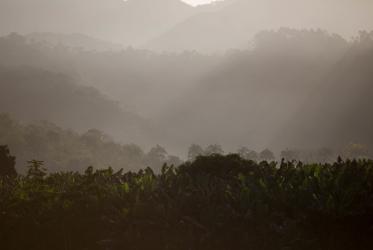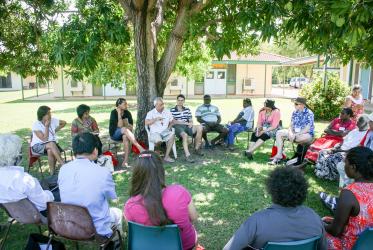Displaying 1 - 20 of 29
CCIA meets in Brisbane with focus on Pacific regional priorities
19 February 2020
Protect the Amazon, urges WCC statement
22 November 2017
WCC offers condolences upon death of Anglican Archbishop Turei
13 January 2017
Indigenous spirituality: can it transform injustice into justice?
01 September 2016
Presbyterian Church in Taiwan delegation visits WCC
05 February 2016
Consultation considers right to food in context of climate change
15 December 2015
Land rights focus of panel discussion
17 November 2015












